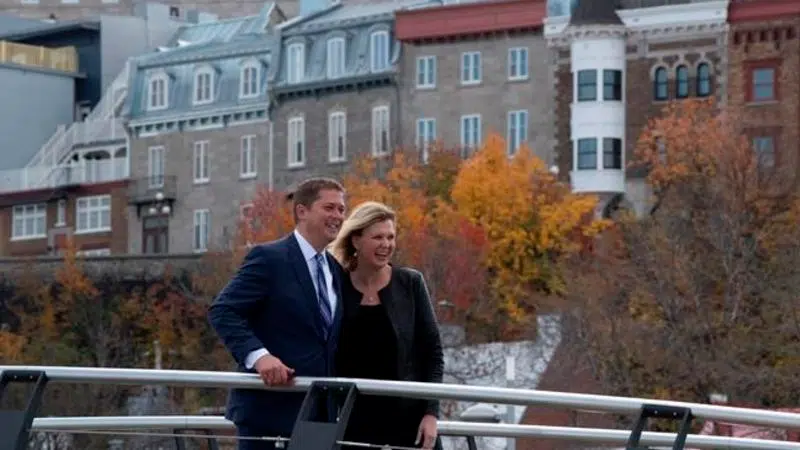
Scheer makes play for reworked federation in bid to thwart rise of Bloc
QUEBEC — Conservative Leader Andrew Scheer warned Tuesday that Canadian national unity is at risk without a change in government.
The federation must be reimagined for the 21st century, Scheer said as he made a direct pitch to Quebec voters, who polls suggest are increasingly supporting the separatist Bloc Quebecois.
Scheer quoted Sir John A. Macdonald, Canada’s first prime minister, as saying that “everything is to be gained by union, and everything to be lost by disunion.”
“Sadly the wisdom of our first prime minister is lost on our current one,” Scheer said.
